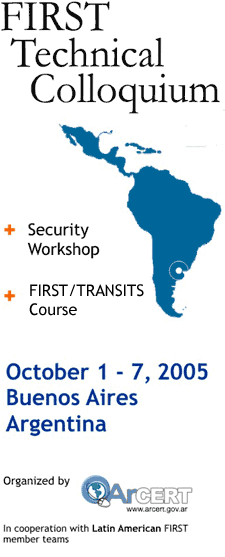Timezone
In October 2005 the local time in Buenos Aires is GMT-3.
For more detailed information, please visit:
http://www.timeanddate.com/worldclock/city.html?n=51
Weather
Remember that in the southern hemisphere seasons are the opposite to those in the northern hemisphere. In general, the summer is the best time to visit Patagonia and the Southern Andes because of the mild temperatures and long days. Wintertime is recommended for travelling to the North and Northwest as rains are less frequent and tropical temperatures drop a few degrees. Autumn and spring are marvelous in Buenos Aires, Cuyo and the pre-mountain range areas of La Rioja and Catamarca.
The climate of Buenos Aires is mild all year round. The mean annual temperature is 18º C (64.4º F), making extremely hot and cold days very infrequent. Thus, visitors can enjoy walking around the city in any season. July is the coldest month. Although frosts are rare, a woolen coat, a jacket or an overcoat and a scarf will be required when going out. Rains are more frequent in autumn and spring (from March to June and from September to December, respectively). They are mild or last a short time, thus activities are not hampered and people usually go out with an umbrella or a raincoat. In the sunny days of autumn and spring, mornings are slightly cold; the temperature rises at midday and drops again at night.
See forecast for current information
Currency, traveler checks, credit cards ad exchange rates
The current unit in Argentina is the Argentine Peso (ARS or $).
Until January of 2002, one peso equaled one U.S. dollar and this value was established by the Law of Conversion. As of that date, such law was abolished and the peso began to fluctuate in the market, thus, causing the quoted price to change on a daily basis.
This new economic standard, which involved a considerable devaluation of the Argentine currency, makes this country an attractive destination not only for its natural beauty, but also now for its very accessible prices to foreign tourists.
- 1 EUR = 3,54 ARS (to facilitate calculation, 3 EUR approximately 10 ARS)
- 1 USD = 2,87 USD (to facilitate calculation, 7 USD approximately 20 ARS)
Some of the larger shops in Buenos Aires usually accept traveler checks, but it is unlikely in the smaller stores or shops; in which case you will need to cash them in banks or a Money Exchange Office (called ?Casa de Cambio?).
Cash withdrawal machines (ATM), banks and exchange offices are available city-wide. Well-known credit cards (Visa, American Express, MasterCard and Diners Club) are accepted in hotels, most of the restaurants and shops.
You can exchange money in hotels, banks and money exchange offices. Banks may offer a more convenient exchange rate, although the procedure could take longer. Undoubtedly, the easiest foreign currency to exchange is the U.S. dollar (USD), thus, making it convenient to first exchange your money to dollars in your country. Even though many places accept payment in dollars, it is always good to carry Argentine pesos at all times. This is essential when traveling to more remote provinces and areas.
For information on exchange rates check:
Eletricity
Electric power in Argentina is 220 volt, 50-cycle alternating current. Power outlets have 2 cylindrical holes or 2 flat holes with ground connection. It is convenient to bring an adaptor for these outlets to use your electric devices without problems.
Vaccination is neither obligatory nor necessary to visit Buenos Aires since the city is safe from the sanitary viewpoint. The public water supply is reliable. Public hospitals - available for tourists ? offer a 24-hour emergency service, without charge. Argentine physicians are considered excellent professionals worldwide. The ambulance emergency service (SAME) is also for free.
Business hours
- Bank Hours: Banks open at 10 am and close at 3 pm (some banks extend their closing time to 4 pm), from Monday to Fridays.
- Shop Hours: Shops are open Monday through Fridays, from 9 am to 8 pm, and Saturdays from 9 am to 1 pm; however, shops located in important avenues are open on Saturday afternoon. In shopping centers, hours usually extend until 10 pm, including Saturdays and Sundays.
- Meals Hours: The hours in which ?porteños? (from Buenos Aires) have their four meals are variable, since this is accommodated according to their activities.
Tour
Tourism in Argentina
Buenos Aires### - Official Website of Secretariat of Tourism of Buenos Aires City Government
http://www.bue.gov.ar/home/index.php?lang=en
Tips
10% of the amount of the check is usually left in cafeterias and restaurants. Doormen, porters, and ushers in cinemas and theatres are also generally tipped.
Most of the information presented on this page was based on the three following web pages:
They are strongly recommended for foreigners who will visit Argentina and would like to obtain additional information about this country.

